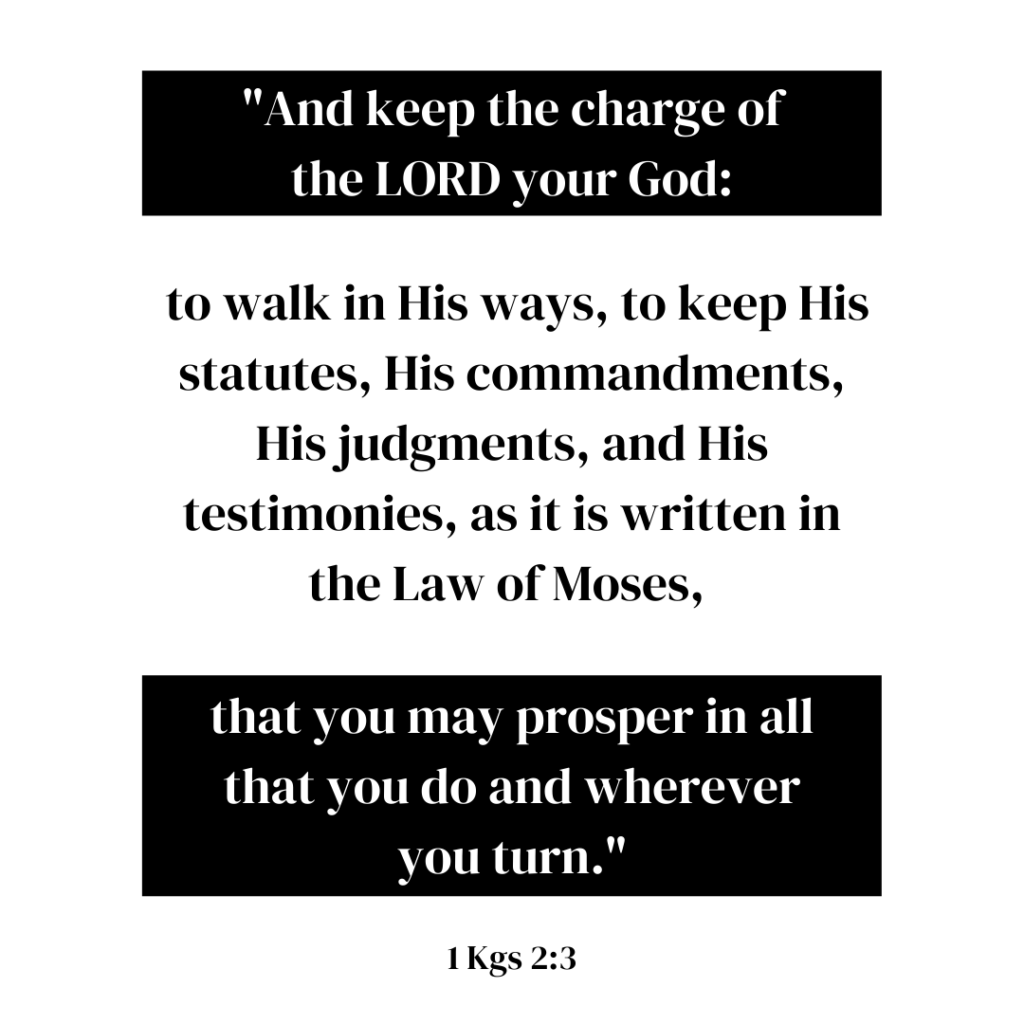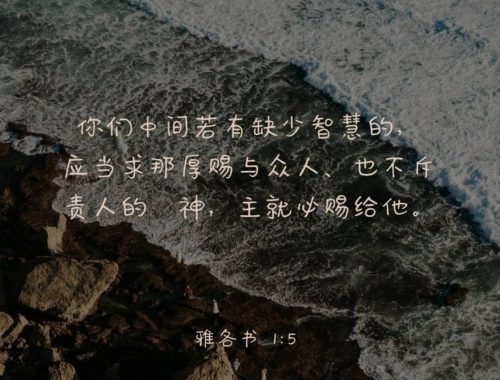Lessons from 1 Kings Chapter 2

David’s dying wish (1 Kings 2:1-9)
David was approaching death and so he left a will for Solomon, to fulfil his unfinished desires. On the surface, it seemed that David wanted Solomon to carry out matters that were David’s unresolved personal grievances, but it was actually about the kingdom of God and the word of God. In the kingdom of God, righteous judgment is executed according to the way of God, and those who obey God receive grace, whereas those who disobey are condemned.
David wanted Solomon to carry out four things:
1. Obey God’s command (1 Kings 2:1-4)
David’s first intention was for Solomon to obey the Lord’s command, so that whatever he did, no matter where he went, he would be prosperous, and his descendants will sit on the throne of Israel. David knew that the peace of the lives of people and the prosperity and stability of the country depended entirely on whether the king was loyal to God.
2. Eliminate Joab (1 Kings 2:5-6)
David explained the two sins committed by Joab: Firstly, he had killed Abner, the marshal of Saul (2 Sam 2:22-23, 3:27-28), and secondly, he had killed his cousin Amasa (2 Sam 19:13, 20:8-10). David had left these two talented marshals for the benefit of the kingdom of God, for the saying goes: A thousand troops are easy to find, but a general is hard to find.
Yet, Joab did not care about the king’s intentions and did not consider the interests of the country. He had this mindset: As long as anyone is a threat to my status, I will remove them.
David asked Solomon to kill Joab not for personal vengeance, but for the kingdom of God. If a selfish careerist like him was not removed, there would be endless troubles.
3. Kindness to Barzillai (1 Kings 2:7)
Before his death, David remembered how Barzillai had helped him. When David was fleeing, he gave David food and daily necessities (2 Samuel 17:27-29). Although these daily necessities were not something extremely great, but for fugitives in trouble, this kindness would have been unforgettable for a lifetime. It was timely help – like sending charcoal in the snowy weather, or like providing a glass of cold water to one who is thirsting to death.
Are we merely icing on the cake (only providing help to someone who is already well off) or do we give charcoal in the snow (providing help in someone’s hour of need)? More importantly, are we grateful or ungrateful?
4. Execute Shimei (1 Kings 2:8-9)
David also remembered that Shimei was not good to him, and Shimei was one who had “thrown stones at him who had fallen down a well”, i.e. Shimei had harmed David who was already in a bad place and cursed him with vicious words (2 Samuel 16:5-8).
Did not David prevent people from killing him previously? Why then did he ask Solomon to kill him in the end? When David stopped people from killing him, it did not mean that he was not guilty, but because that had been the day when he ascended the throne. It had been a day of joy, and so he did not want any blood to be shed. It was not that David didn’t take vengeance, but that it was not yet the right time. So be careful of what we sow today, for we will receive the return in the last days.
Did David abuse his power to avenge the wrong that Shimei had done in cursing David? Shimei had gone to David to beg for forgiveness of his sins. David had sworn: “You shall not die”. Abishai believed that since Shimei had cursed the Lord’s anointed, he should be put to death. Shimei was not just guilty of cursing someone in general but was guilty of cursing the Lord’s anointed. David could forgive Shimei for cursing him personally, but the sin of his cursing the Lord’s anointed must be judged according to God’s law.
David had sworn: “You shall not die”. Does that mean that David violated the oath before God? No, because David did not kill Shimei while David was alive. After his death, his oath was no longer in effect. Just as the law says, when the husband dies, the wife can remarry, and the wife is not considered to have violated the oath she swore before God.

